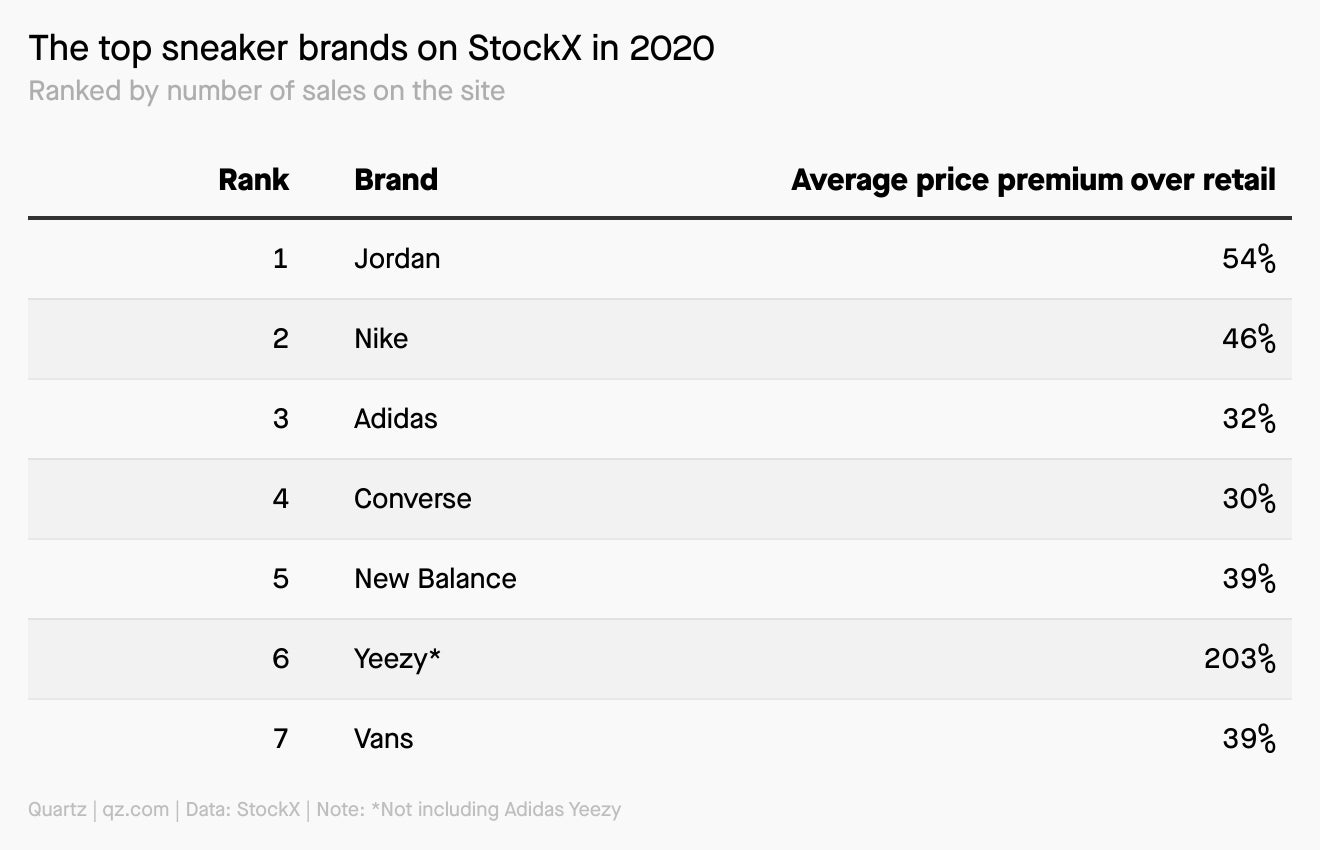For members—A fractional share of a sneaker?
Hi Quartz member,
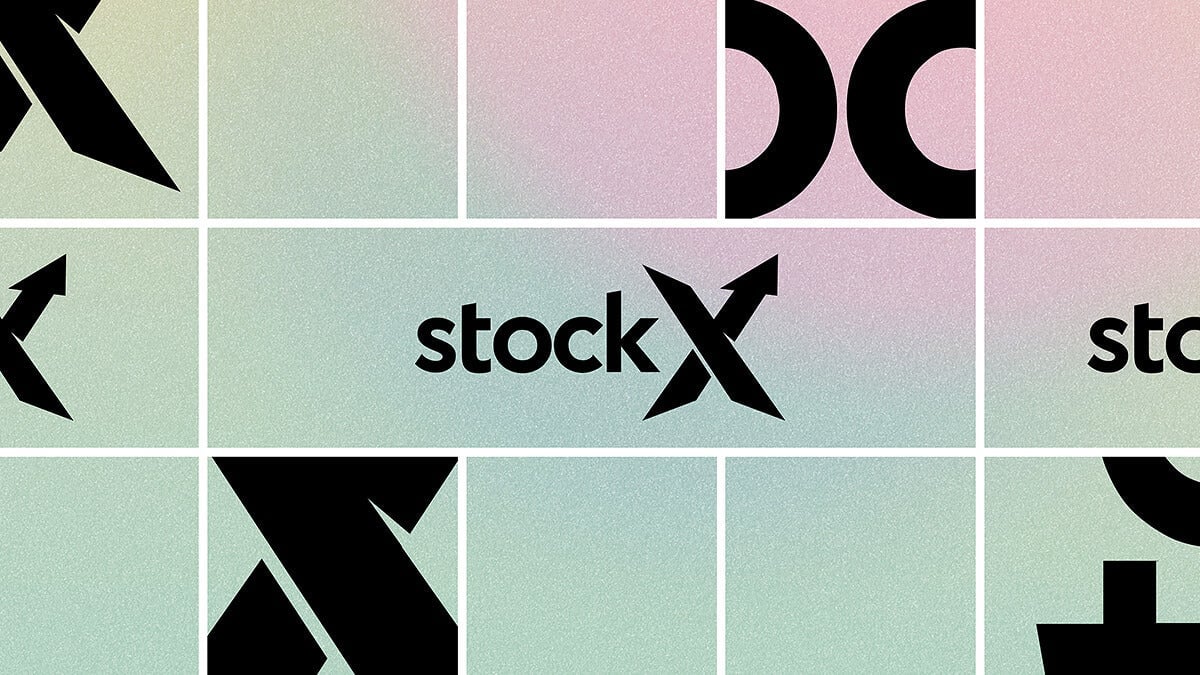


Hi Quartz member,
Every week, shoppers online scramble to get their hands on some new sneaker release, and every week, most invariably fail. But the hunt isn’t over. Those willing to pay a premium for their desired shoes will always find them on resale marketplace StockX, whose trade in sneakers helped it snag a $3.8 billion valuation in April. The company’s ambitions, though, have always been bigger than footwear.
But first, a recap: India’s largest oxygen maker explained why there’s a shortage, China is trying to put the brakes on Tesla’s biggest rival, and the US approved its first major offshore wind farm. It’s time for India to stop using plasma therapy for Covid-19, and it’s time for the US to ignore inflation and focus on jobs. Who is most likely to pay cyberattack ransoms? Energy companies. What’s the definition of an NFT? Merriam-Webster weighed in. Is the entry-level job going extinct? Concentrate and ask again.
Your most-read story: Taiwan’s Covid-19 success is facing a setback. And most relatable member goes to the reader of How do you know if you’re losing your mind? We get it.
Now, lace up those Jordans and buy, sell, buy, sell.
What is StockX?
StockX is best known as a large online resale marketplace for sneakers, but it was founded in Detroit in 2016 as the first online “stock market of things,” bringing the same pricing scheme that underlies the stock market to consumer goods. The site operates on a bid-ask model. Interested buyers commit to a price they’ll pay for an item (bids), and sellers commit to a price at which they’ll part with an item (asks). When there’s a match, a sale happens. (Sales can also happen immediately if a buyer pays the lowest asking price or a seller takes the highest bid.) It means prices fluctuate according to supply and demand, and just as with stocks, users can see how prices change over time.
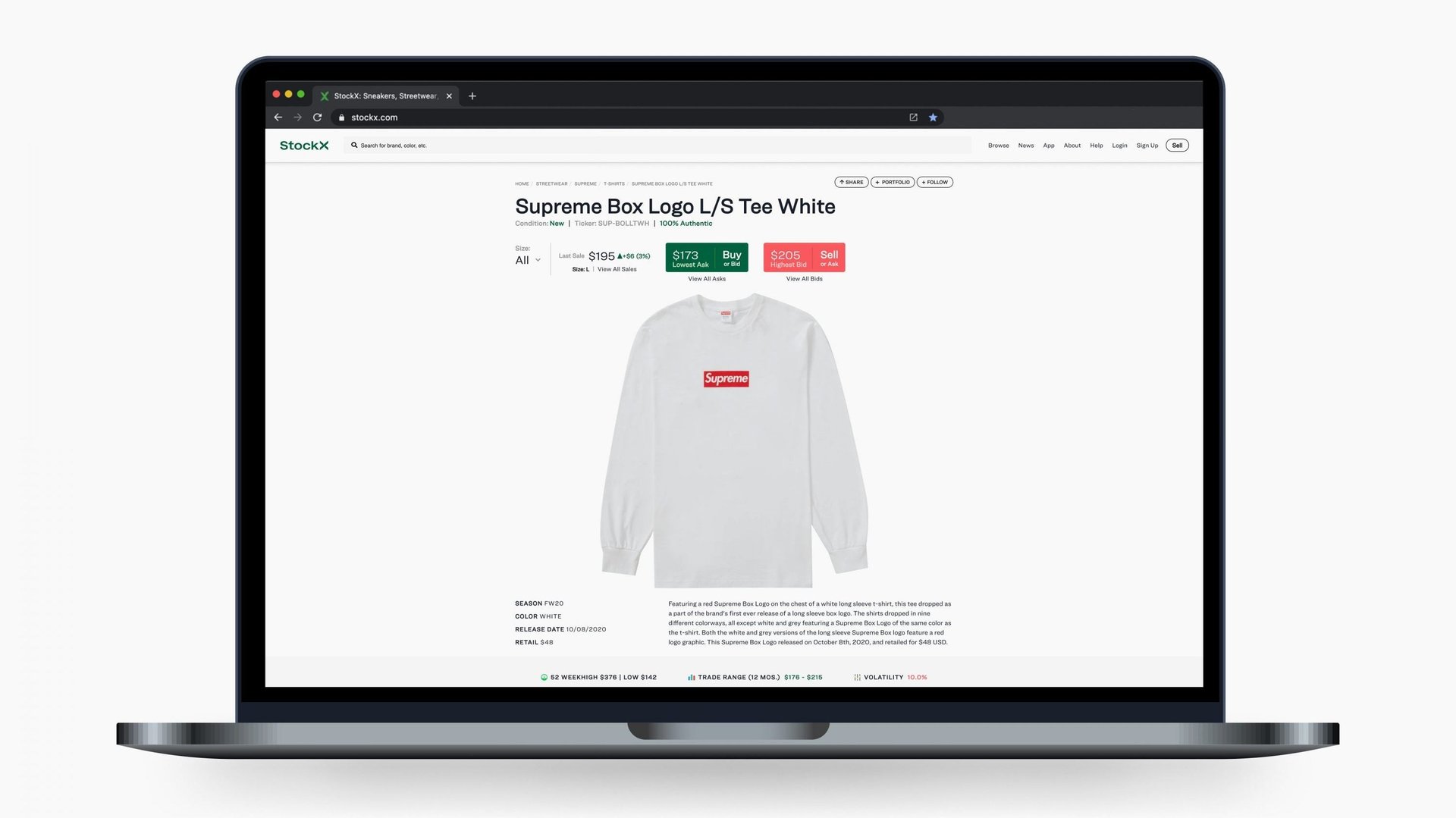
The system theoretically works with any highly sought, limited-quantity product, allowing StockX to expand into categories such as collectibles, streetwear, and most recently, electronics. Many shoppers unable to get their hands on a PlayStation 5 at retailers have been finding them—at a premium—on StockX. In fact, the game console was the top-selling product on the site in the past year by both number and value of sales, according to Jesse Einhorn, StockX’s senior economist.
Even so, sneakers remain the core of StockX’s business—and not just the hyped varieties that sell for several hundred dollars and up. While those shoes get the most attention, the majority of items listed on the platform sell at a moderate premium over their retail price. Einhorn says Nike’s popular and widely available Air Force 1 ’07 has been the best-selling Nike shoe on the site for the past two years.
StockX’s footwear sales are primarily responsible for the $3.8 billion valuation it snagged in April—a full billion above what it notched only four months earlier. And the company is growing fast as sneakers become status symbols and demand for hard-to-get shoes rises. Now StockX’s plans for the future depend on its reach into new categories and further expansion to regions such as Europe and Asia.
The secondary sneaker market
StockX is a dominant player in sneaker resale, but it has no shortage of competition. Some of its well-known rivals include GOAT, valued at $1.75 billion last year, and Stadium Goods, which was snatched up for $250 million in 2018 by online luxury fashion retailer Farfetch. All are vying for their slice of the fast-growing resale market.
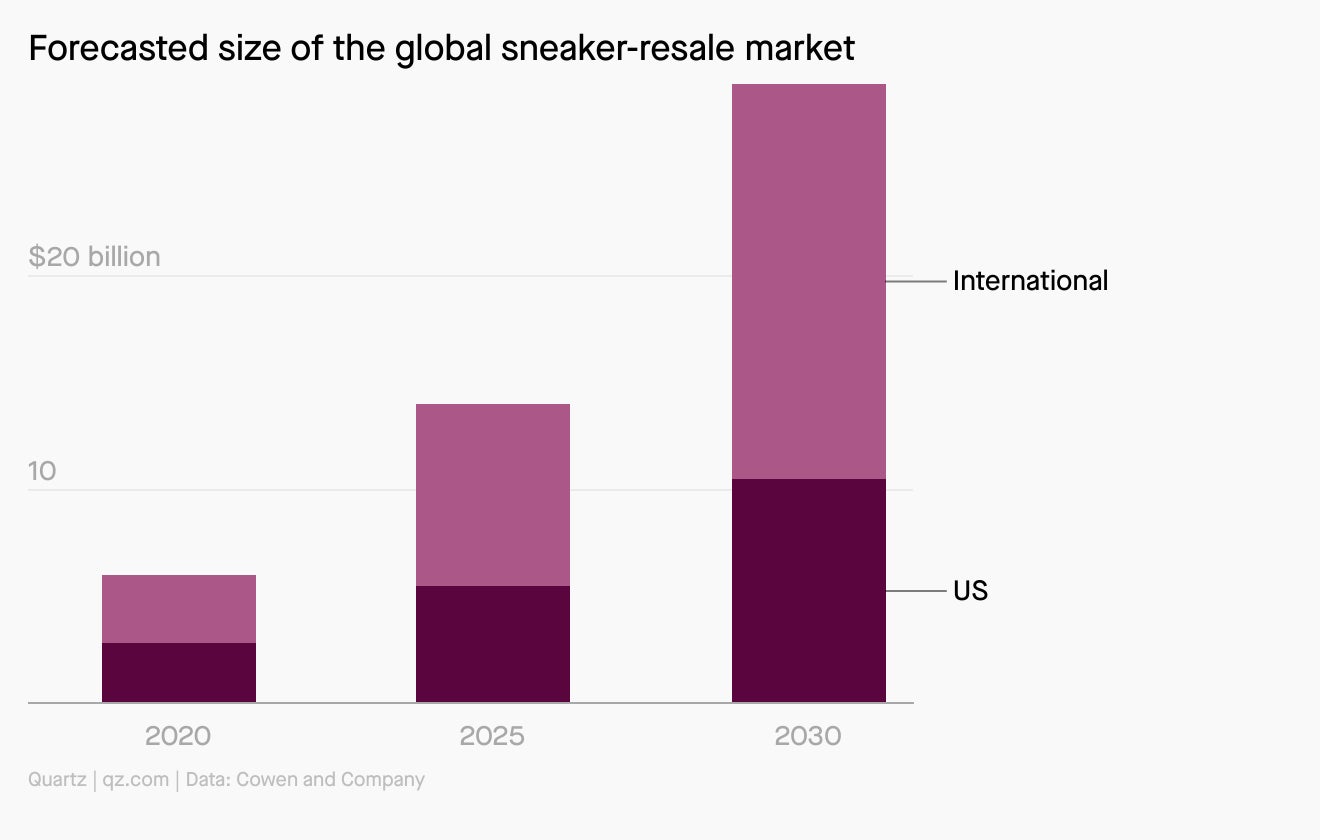
By the digits
30 million: Monthly global visitors to the StockX site
70%: Share of StockX users who are under age 35
100%: Increase in female users of StockX in 2020 versus the prior year
135%: Increase in StockX buyers located outside the US in the first quarter of 2021 compared to the same period last year
$1.8 billion: Value of total merchandise sold through StockX in 2020
$400 million: StockX’s revenue from the sales
200: Number of countries and territories StockX served in 2020
11: Number of authentication centers StockX operates globally
1: Rank of Nike’s Jordan brand among sneaker brands on StockX in terms of 2020 sales (pdf)
4,000%: Increase in sales of trading cards on StockX in 2020 versus the prior year
77%: Share of collectibles sellers on StockX who also sold at least one pair of sneakers on the site last year
Brief history
📊 StockX evolved out of Campless, a site that scraped eBay for data on sneaker sales. Campless was built by Josh Luber, who created it in his off time as a strategy consultant at IBM.
👟 Independently, Dan Gilbert, the founder of mortgage-lending giant Quicken Loans and majority owner of the Cleveland Cavaliers basketball team, had been toying with the idea for a bid-ask marketplace. He noticed his sons always buying sneakers off eBay and recognized what Luber was doing with Campless.
💰 Gilbert and Greg Schwartz, who worked with Gilbert at a venture investment firm, linked up with Luber. StockX was born, using sneakers as a launching pad.
🕴️ In 2019, StockX found its new CEO in Scott Cutler, who previously held leadership roles at eBay, Stubhub, and the New York Stock Exchange. Luber recently departed StockX with plans for a new startup, details of which have yet to be revealed. Gilbert is still invested in the company.
QZ: How big is the opportunity beyond sneakers?
SC: Oh, there’s a significant opportunity for categories of current culture. In 2016 we had 6,000 product listings from 17 brands. Today we have 125,000 different items in the catalog from over 500 brands. In some of our new categories, as an example, electronics, which we introduced in Q4, we have over 300 items in that catalog from Microsoft to Sony to Apple to [chip maker] Nvidia. The PlayStation [5 and Xbox Series X] gaming consoles were two of our top products in 2020. Collectibles [is] another exciting category for us.
QZ: Does stock X have any plans around NFTs?
SC: We think about it in a number of different ways. One of those experiences could be for a buyer that might choose to purchase a product but never possess it, in which case we could hold that in inventory. On the other hand, sellers could actually place items into our warehouse and we could provide for instantaneous shipping of that item. We actually conceived from the very beginning of the idea that either fractionals or a digital representation of the underlying physical asset is the way many people like to trade. So certainly as commodities and these products trade more like financial instruments, it’s a huge opportunity for consumers and investors.
QZ: Are we going to see sneaker futures at some point?
SC: Yes, I mean, we very well could. Indexes, futures, derivatives, digital representation of that sneaker or a fractional share of that sneaker. That trend of the digitization of physical products that’s being unlocked with these blockchain-based technologies is really exciting.
Legit check
StockX deals only in deadstock—that is, shoes that are unworn, in new condition, and authentic. To make sure every pair it sells is genuine, the company inspects them at authentication centers. Here are just a few of the dozens of details StockX authenticators look for to make sure an item is real:
- The condition of the shoe
- The materials it’s made from
- The stitching
- The outsoles
- The tags inside the shoe
- The box, including: color of the packaging material, texture of the material, correct size and style labels, condition, and the tissue paper inside
- Assorted other details, down to a sniff test: “It just had a very distinct smell that we hadn’t smelled before,” one authenticator told the Associated Press in 2018 after identifying a pair of Jordans as counterfeit, “so we knew automatically that was fake.”
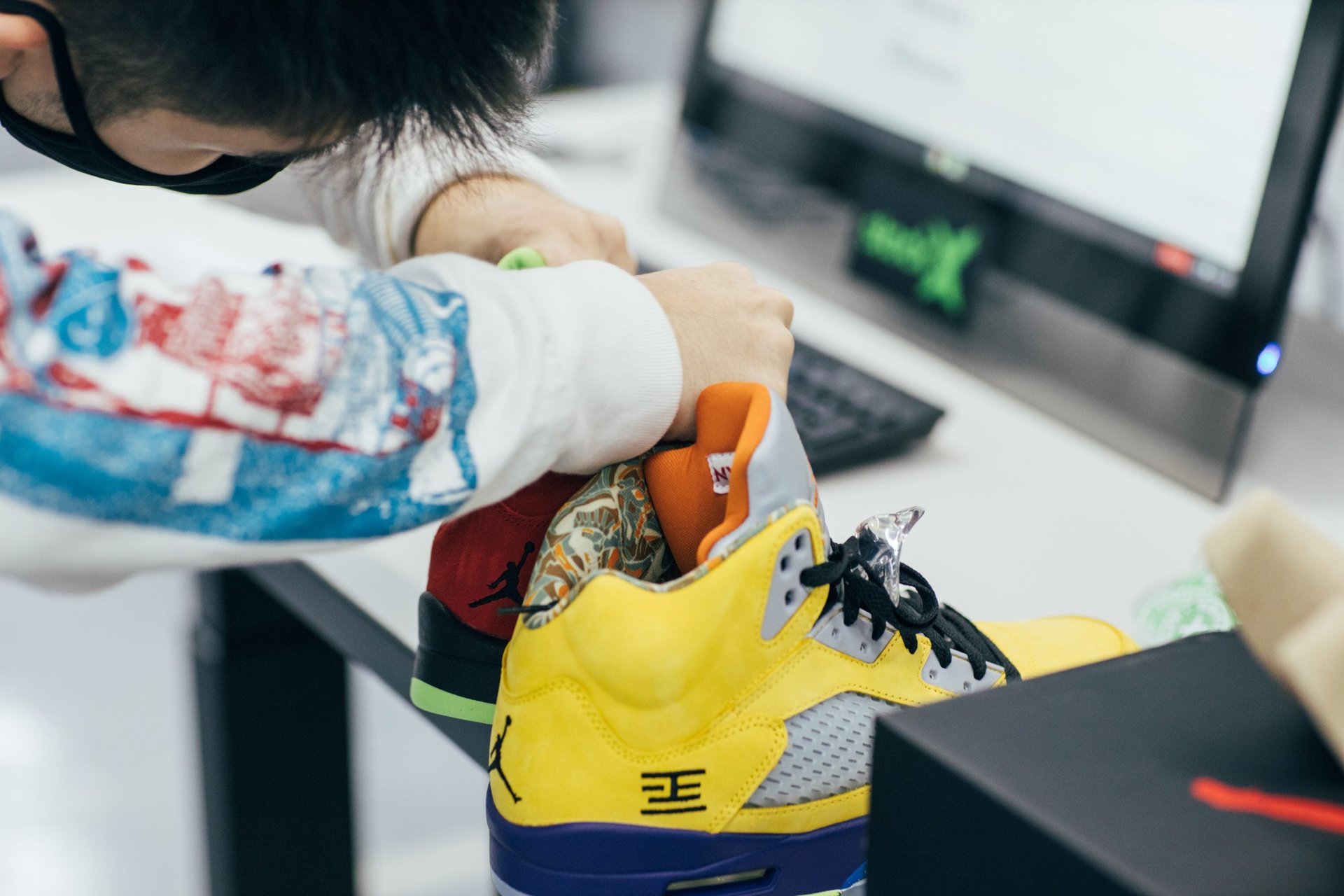
Keep learning
- For StockX, selling sneakers is just the beginning.
- Nike carefully positioned the Dunk to be 2021’s hottest sneaker.
- And is trying to rebuild trust with sneakerheads after a nepotism scandal.
- A boycott of foreign brands boosted resale for Chinese sneakers.
- Meanwhile: Whatever happened to Reebok, once the biggest sneaker brand in the US?
Thanks for reading! And don’t hesitate to reach out with comments, questions, or companies you want to know more about.
Best wishes for a hyped end to your week,
